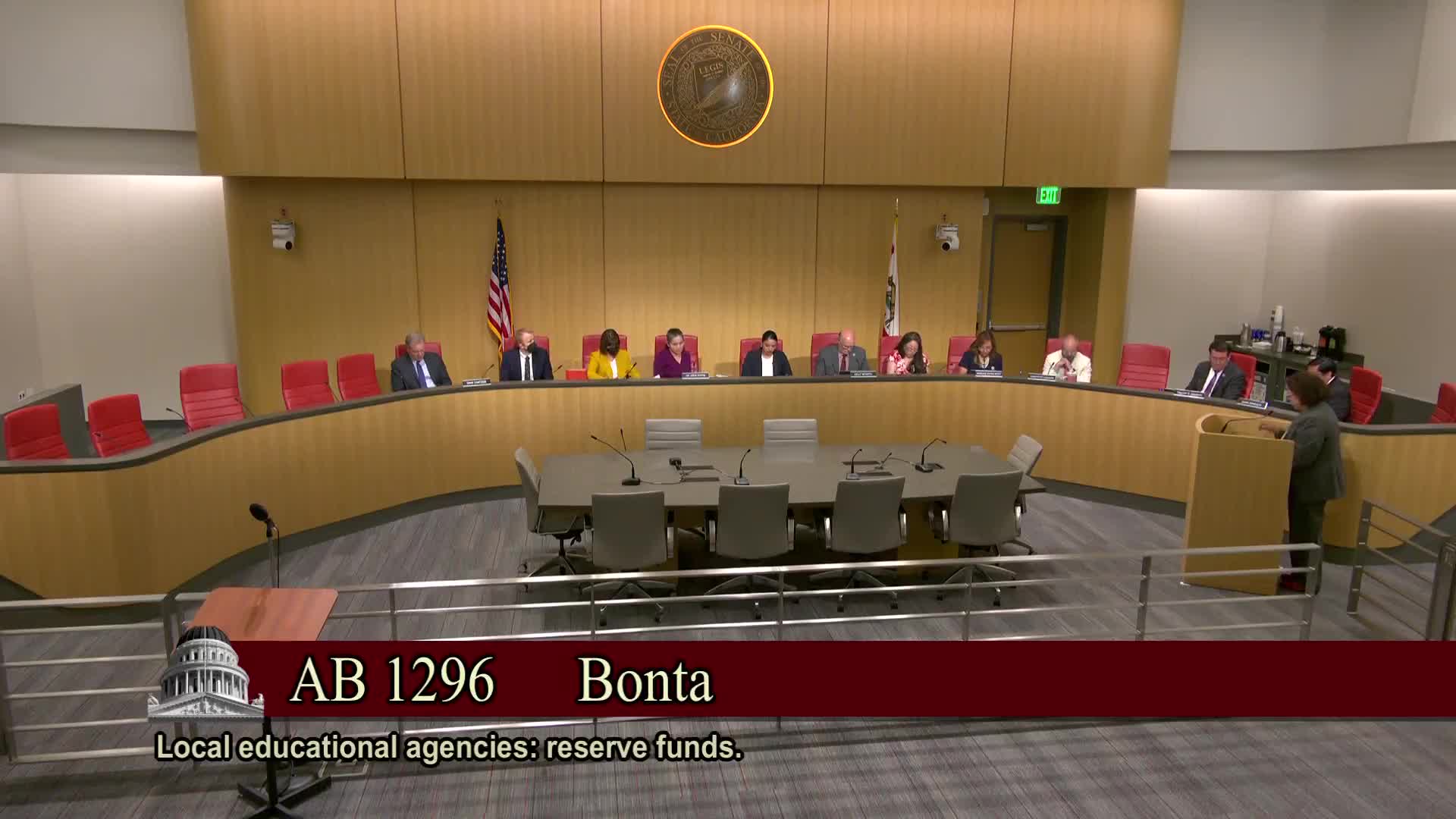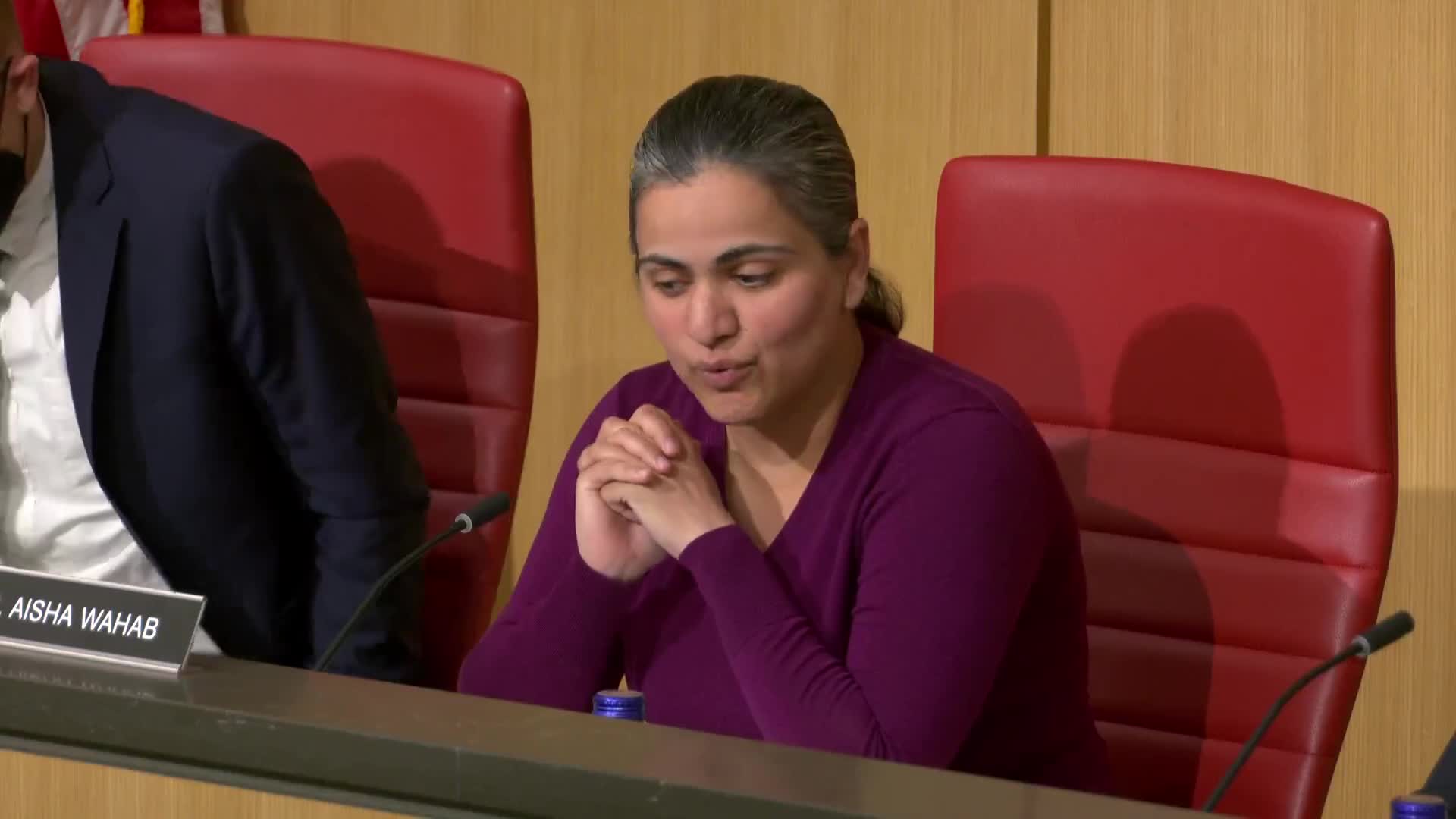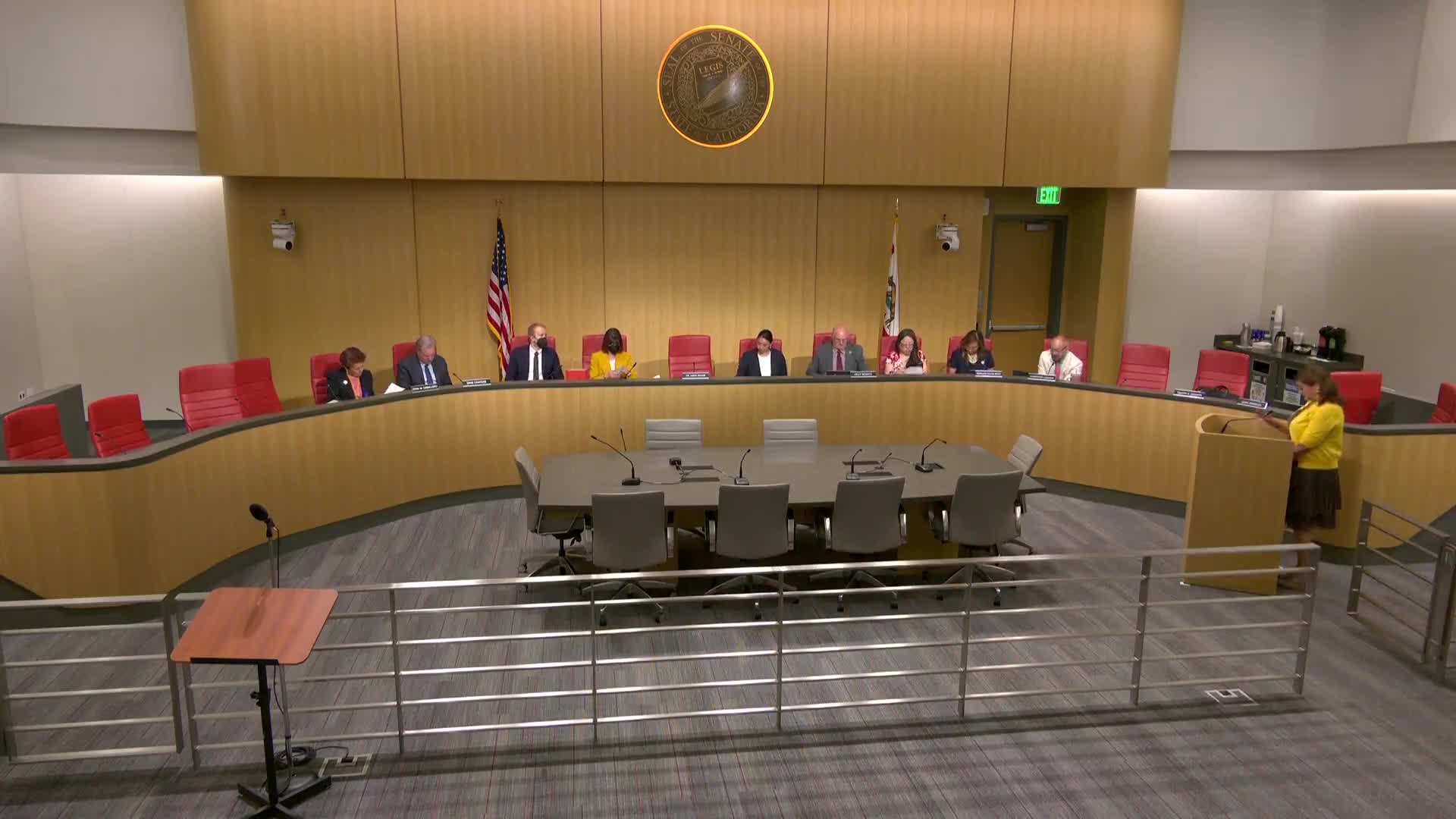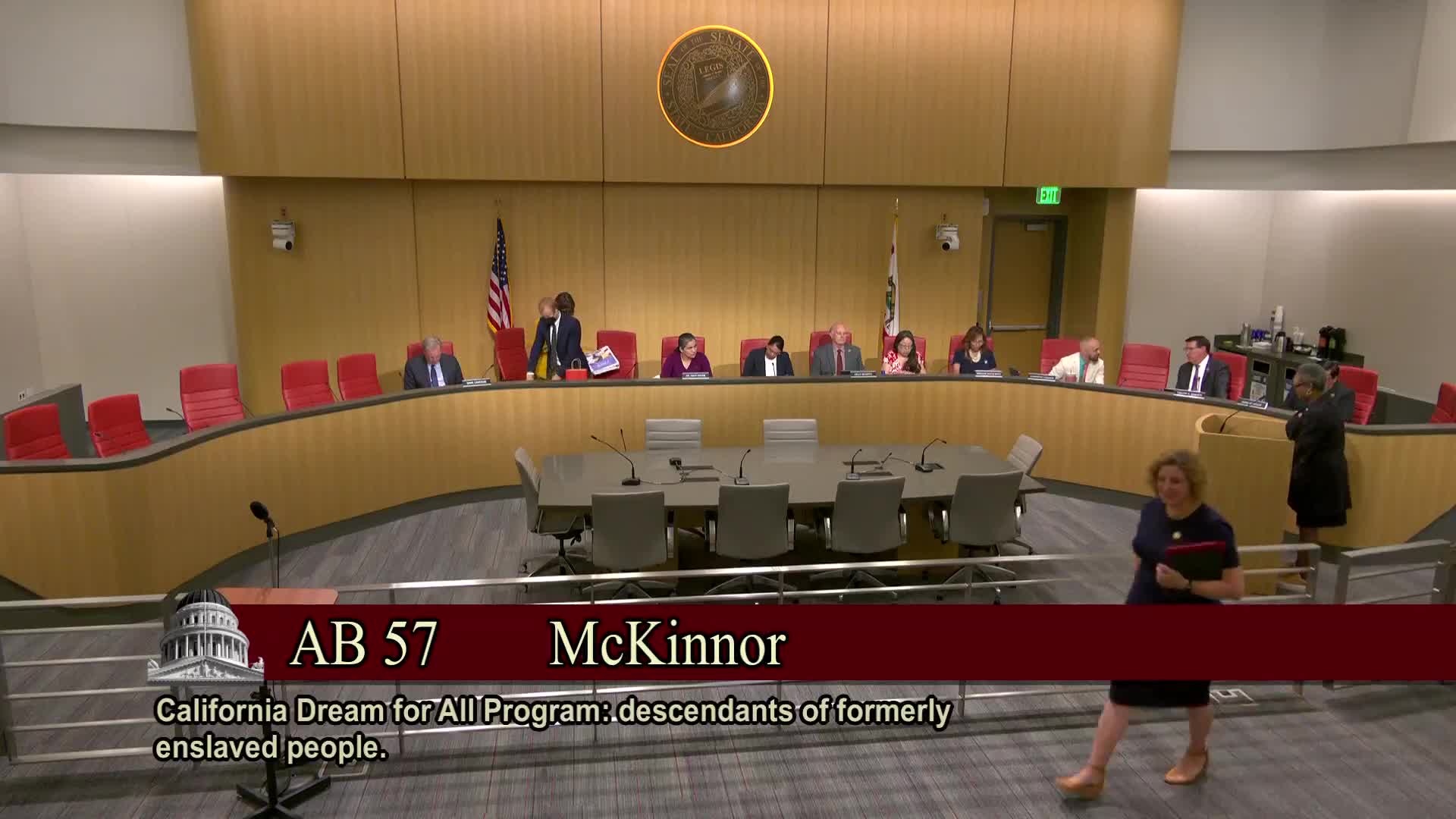Article not found
This article is no longer available. But don't worry—we've gathered other articles that discuss the same topic.

Committee advances bill directing HCD to help districts plan educator housing on district land

Senate committee advances bill to enforce permitting timelines across state agencies

Lawmakers move bill to allow SB 9 lot splits and duplexes in historic districts with limits

